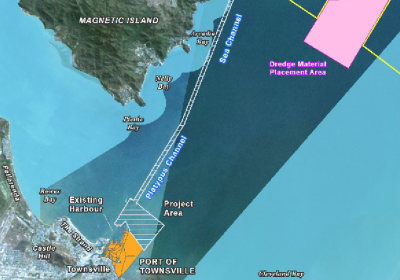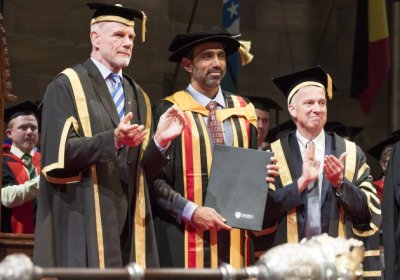Delegates to the recent Labour Party conference in the English seaside town of Brighton seemed not to notice a video playing in the main entrance.
1156
As the Nobel Committee announced on October 6 in Oslo that the International Campaign to Abolish Nuclear Weapons had won the Nobel Peace Prize. At the same time, US President Donald Trump is expected to “decertify” the landmark 2015 Iran nuclear deal next week. Democracy Now! spoke with Tim Wright, the Asia-Pacific director of the International Campaign to Abolish Nuclear Weapons. The full transcript follows the video.
Thousands of people have come out in dozens of locations around Australia to oppose Adani's mega coalmine.
The Australian Marine Conservation Society (AMCS) warned that the Queensland government’s September 29 proposal to significantly expand the Port of Townsville, will further damage the ailing Great Barrier Reef.
Socialist Alliance candidates for Brownbill Ward in the Geelong Council election, Sue Bull and Sarah Hathway, who were among the first women candidates to nominate, have released their preferences, with the top seven positions going to progressive female candidates.
The several hundred men on Manus Island, still detained after more than four years, scattered red petals over pictures of Rajeev Rajendran on the evening of October 2.
So declared George Orwell’s allegorical Joseph Stalin, Napoleon the Berkshire Boar, in his 1945 classic Animal Farm. In Australia, we’ve declared war on some inequalities, like those contained in the Marriage Act, while we acquiesce to, tolerate, ignore or accept many others. Just like the animals on Orwell’s Manor Farm, in contemporary Australia, it seems all inequalities are equal but some are more equal than others.
The world media’s attention has focused on the very real humanitarian crisis gripping hurricane-ravaged nations in the Caribbean and regions of the United States, but the “world’s worst humanitarian catastrophe” (in the words of The New York Times in August) is in Yemen.
The United States has been criticised for voting against a United Nations resolution that sought to eliminate the death penalty for the LGBTIQ community. The US was among 13 nations including Saudi Arabia and Iraq to vote down the resolution.
France’s Council of Ministers approved five ordinances on September 22 that undermine union power and employment rights within France’s Labour Code, which came into effect the next day.
The government imposed these changes by using undemocratic measures in France’s constitution, which allows it to push new measures into law without passing legislation through parliament.
In the face of this, the movement against the changes continues to build.
Fluctuating poll results indicate that the imminent Queensland election is an open contest between the Annastacia Palaszczuk Labor government and the Liberal National Party (LNP) opposition. Strong campaigns by the Greens and One Nation could also see newcomers into the state parliament from both left and right.
Former Sydney Swans player, anti-racism campaigner and 2014 Australian of the Year Adam Goodes was awarded an honorary doctorate from the Faculty of Health Sciences at the University of Sydney on September 30. The Adnyamathanha and Narungga man was named a Doctor of Health Sciences (honoris causa) for his work in supporting the Indigenous community, his charity work, his community leadership and his sporting exploits.
- Page 1
- Next page











